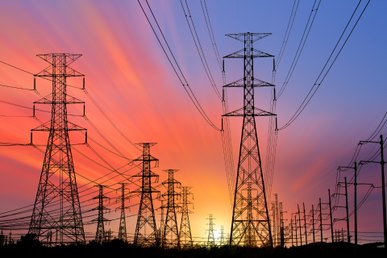The organization responsible for North American electric reliability warned energy shortfalls were possible this summer in California, Texas, New England and the Central United States based on above-normal temperature forecasts for much of the region.

“Of greatest concern (during extreme heat) is California, where up to 11 gigawatts (GW) of additional transfers are expected to be needed in late afternoon to offset reduced solar output” versus just one GW on a normal day, the North American Electric Reliability Corp (NERC) said late Thursday following a board meeting.
One gigawatt can power about a million U.S. homes on average but as few as 200,000 during a hot summer day when consumers crank up air conditioners.
NERC develops power reliability standards for the United States, Canada and parts of Mexico.
Unprecedented conditions challenged the energy sector over the past year, including the coronavirus pandemic, a historic hurricane season, extreme heat and wildfires in the West, extreme cold and natural gas pipeline freezing in Texas and cyberattacks that shut a major oil pipeline.
NERC said it wants greater coordination between electric and gas companies.
“We have very recent experience with the impact of cold weather and cyberattacks that magnify the urgency of focusing on these very real risks to the reliable operation of the bulk power system,” Howard Gugel, NERC’s vice president of engineering and standards, said in a release.
NERC called on gas regulators to establish cybersecurity standards comparable to NERC’s standards.
“The Colonial pipeline attack underscores the interconnectedness of electricity with other infrastructures and is the reason we must redouble our focus on reliability of the pipeline system that delivers essential fuel,” NERC Chief Executive Jim Robb said.
“If this happened to a major gas line serving electricity generators under extreme cold weather conditions, the results could have been catastrophic.”



